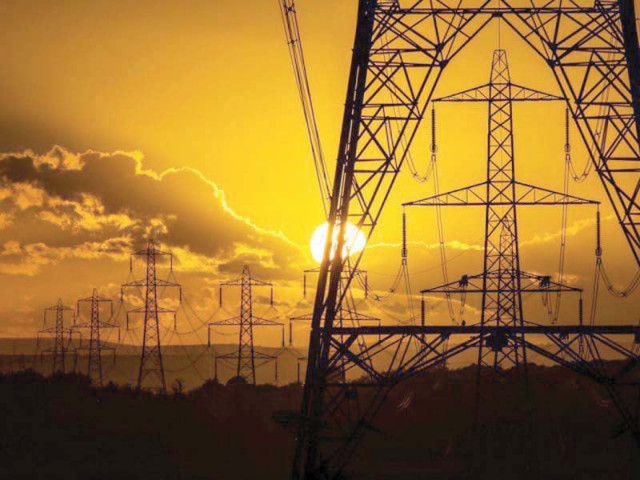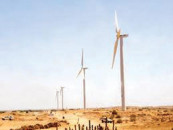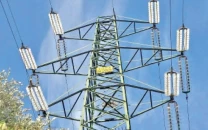KE base tariff may rise by Rs10 per unit
NEPRA reviews request; company rules out any impact on consumers

The base tariff for K-Electric (KE) consumers may surge Rs10 per unit, if the regulator approves the proposed revision in the company’s multi-year tariff.
KE has sought a total base tariff of Rs44.69 per kilowatt-hour (kWh), reflecting an increase of over Rs10 from the previous multi-year tariff where the base tariff was Rs34.
A major cost component is the energy purchase price which amounts to Rs18.88 per kWh, adjusted monthly and quarterly based on the cost of electricity.
In addition, the capacity payment component amounts to Rs12.54 per kWh, with quarterly adjustments. Transmission charges are calculated at Rs3.48 per kWh, varying quarterly based on the transmission cost.
Similarly, distribution charges are estimated at Rs3.84 per kWh, depending on the distribution cost. Operation and maintenance cost is calculated at Rs0.42 per kWh, indexed annually with the Consumer Price Index (CPI), while retail margins are worked out at Rs0.59 per kWh, adjusted yearly based on revenue recovery.
Among other components, recovery loss allowance is calculated at Rs2.88 per kWh, which includes a cap and floor mechanism for over/under-recovery. Working capital cost is estimated at Rs2.07 per kWh, adjusted annually for over/under-recovery scenarios.
The newly requested tariff adjustment covers the period from financial year 2023-24 to 2029-30.
The National Electric Power Regulatory Authority (Nepra) has invited all interested or affected parties to come up with comments within seven days from the issuance of a notice, as permissible under the law. This is part of the regulatory process to ensure transparency and stakeholder engagement before any final decision on tariff adjustment.
In a statement, KE ruled out any impact of the company’s tariff request on consumers.
“K-Electric reiterates that the company’s supply tariff petition to Nepra will not impact customer bills. The request has been submitted under KE’s multi-year tariff for the period from FY 2023-24 to FY 2029-30,” it said.
The petition outlines the various cost components necessary to ensure reliable and efficient supply of electricity to a growing number of customers, it stressed, adding that the price of electricity charged to customers in their monthly bills remained governed by the uniform tariff policy set by the government, which ensured the same charges for each customer category across the country.
“As a vertically integrated utility responsible for managing generation, transmission and distribution of electricity, these costs comprise almost 90% of KE’s request,” it said. “These are crucial to ensure a steady and reliable supply of electricity to homes and businesses, with minimal disruption and efficient service.”
RLNG prices increased
Separately, the Oil and Gas Regulatory Authority (Ogra) on Friday increased prices of re-gasified liquefied natural gas (RLNG) by $0.8559 per million British thermal units (mmBtu), or 6.5%, for consumers of Sui Southern Gas Company (SSGC) and by $0.7978 per mmBtu, or 6.16%, for consumers of Sui Northern Gas Pipelines Limited (SNGPL).
The new prices came into effect from May 1, 2024. According to a notification released by Ogra, the weighted average sale price for SNGPL consumers has been set at $13.744 per mmBtu while SSGC consumers will be charged $14.0506 per mmBtu.
In April 2024, the prices were $12.946 and $13.1947 per mmBtu for SNGPL and SSGC consumers respectively. Ogra attributed the price hike to higher supply charges. Since September 2023, RLNG prices have been reduced for two months only – first in January 2024 which saw a reduction of 7.8% and then in February when prices decreased 9%.
The revised RLNG prices include various costs such as LNG terminal charges, transmission losses, port charges and margins for state-owned importers, namely Pakistan State Oil (PSO) and Pakistan LNG Limited (PLL). The new weighted average sale prices have been computed based on the 11 cargoes imported in May.
Published in The Express Tribune, May 25th, 2024.
Like Business on Facebook, follow @TribuneBiz on Twitter to stay informed and join in the conversation.


























COMMENTS (1)
Comments are moderated and generally will be posted if they are on-topic and not abusive.
For more information, please see our Comments FAQ